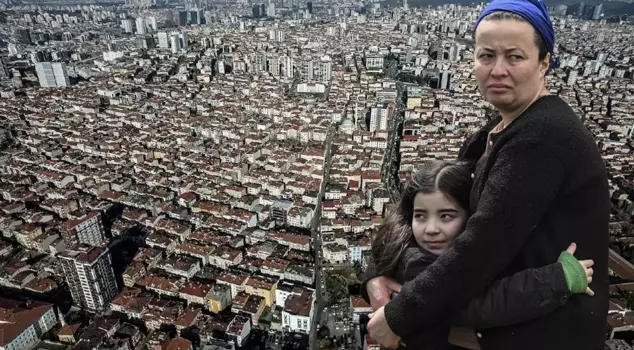
25.04.2025 13:30
After the 6.2 magnitude earthquake off the coast of Silivri, Istanbul, citizens living in older buildings are experiencing hesitation about entering their homes. According to data from the Istanbul Metropolitan Municipality, there are approximately 1,200 buildings in the megacity that are referred to as "coffin buildings," which are at risk of collapsing at any moment. However, there are many addresses where the urban transformation process has come to a standstill.
It is reported that there are about 1,200 "coffin buildings" in Istanbul that could collapse at any moment even with a small tremor. The number of buildings constructed before 2000 and considered risky is approximately 800,000. Millions of Istanbul residents are at risk and do not want to experience the same fear after an earthquake and return to their homes.
PRIORITY SOLUTION: URBAN TRANSFORMATION
The proposed priority solution for coffin buildings and old structures that are at risk of collapse in a possible major earthquake is urban transformation. However, the path to urban transformation is filled with obstacles. There are many addresses in Istanbul where the process has come to a standstill.
"THERE ARE 2 PROBLEMS IN URBAN TRANSFORMATION"
Ali Güvenç Kiraz, the founding president of the Real Estate Law Association, stated that there are two problems in urban transformation, saying, "One of them is the blockages in process management. The second is the litigation processes." Experts are calling for a national mobilization regarding earthquakes in Istanbul.
City Planner Prof. Dr. Murat Yalçıntan stated, "The Istanbul earthquake master plan should determine which areas should be intervened in first, which buildings should be renewed first; this way, risks can be reduced." Experts have different suggestions for the urban transformation model to be implemented, but the common call is that "transformation should be carried out at the block level, not at the building level."
"EVEN WITHOUT AN EARTHQUAKE, THERE IS TRAFFIC CHAOS"
Geologist Prof. Dr. Okan Tüysüz emphasized that transformation should not be building-based, stating, "Even today, without an earthquake, there is a chaos that makes it impossible to go from one place to another." Tüysüz expressed that this chaos needs to be resolved and that the city needs to be replanned.